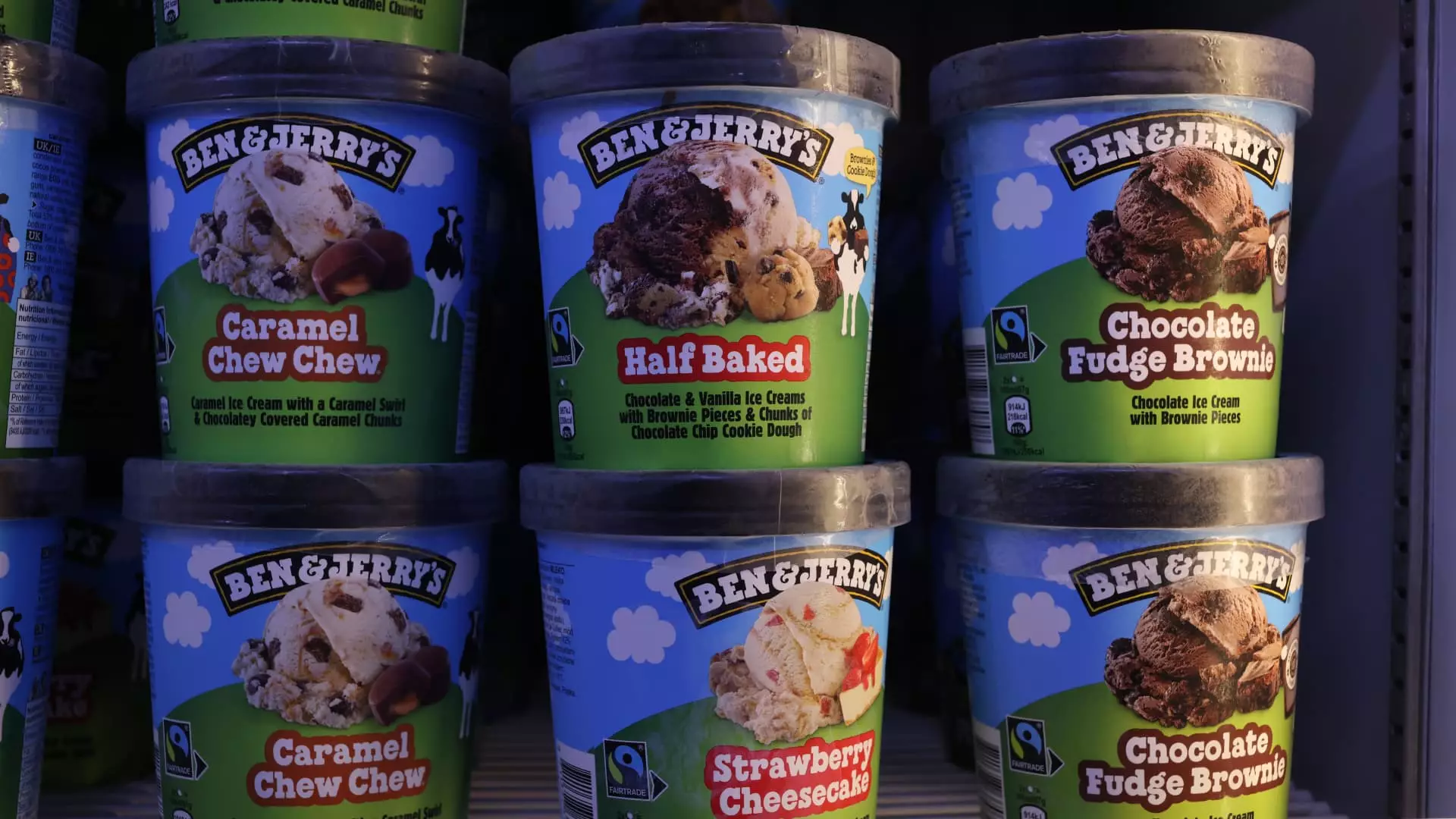Unilever saw its shares spike on Thursday morning after the company raised its full-year margin guidance and confirmed that the spinoff of its ice cream business was on track to be completed by the end of 2025. The increase in shares was initially nearly 8%, settling to around a 5.45% gain by mid-morning in London. Unilever, known for its extensive brand portfolio including Dove, Axe, Hellmann’s, and Vaseline, reported growth in sales across all segments in its first-half results released on Thursday.
While Unilever’s beauty and well-being segment experienced a growth of 7.1%, its ice cream division showed only a minimal sales increase of 0.6% and a 1% decline in volumes sold. The company expressed disappointment in the performance of its ice cream business, which accounts for 15% of its total turnover. Back in March, Unilever announced plans to separate the ice cream unit, which includes popular brands like Ben & Jerry’s and Magnum, in an effort to streamline its operations across different segments.
Unilever CEO Hein Schumacher mentioned that the company had implemented price increases early in the inflationary cycle over the past few years due to rising input costs across various sectors like agriculture, energy, transport, and logistics. Despite a moderate 1% underlying price growth in the second quarter of the year, Unilever’s organic sales growth fell slightly short of expectations. However, the company exceeded forecasts in terms of its gross margin for the period, prompting an upward revision of its full-year margin outlook to at least 18%.
Analysts from Jefferies noted that while Unilever’s sales growth figures were slightly below estimates, the company’s improved margin outlook would likely lead to a boost in earnings per share. Unilever emphasized its focus on expanding margins to reinvest in its top brands through increased marketing efforts. The strong gross margin performance in the first half of the year was attributed to volume leverage and net productivity gains, although some of these factors are not expected to have the same impact in the second half.
Despite the challenges faced by its ice cream unit, Unilever remains optimistic about its overall performance and strategic direction. The company’s decision to divest the ice cream business reflects its commitment to enhancing operational efficiency and maximizing shareholder value. Investors are eagerly watching Unilever’s progress as it navigates evolving market conditions and works towards achieving sustainable growth in the long term.

